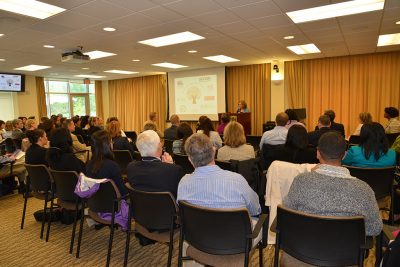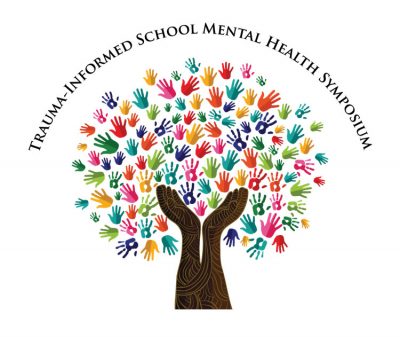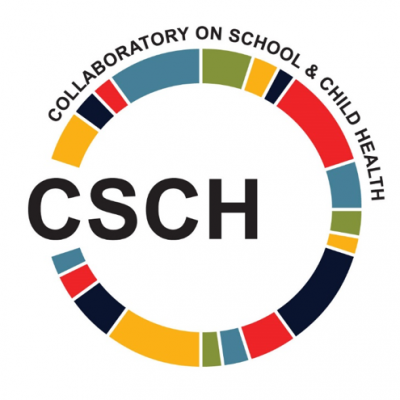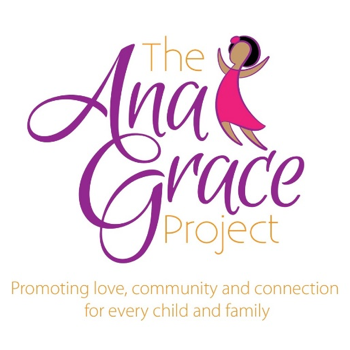
Approximately 100 school, mental health, and community leaders from across the state gathered at the University of Connecticut campus in Storrs on Wednesday, May 24, to discuss childhood trauma and the impact it can have on a child’s education, as well as possible strategies for responding to children who have experienced trauma or have behavioral health issues.
The event, titled “Symposium on Trauma-Informed School Mental Health,” was the result of collaboration between the Capitol Region Education Council (CREC), the Connecticut State Department of Education, the University of Connecticut Collaboratory on School and Child Health and Neag School of Education, the Ana Grace Project, Clifford Beers Clinic, and the Child Health Development Institute. The symposium’s main goals were to increase awareness among participants of important issues in childhood trauma; discuss creation of a common framework for addressing trauma, violence and mental health needs among children; and to stimulate the development of a trauma-informed school mental health plan.
“We are excited to have this collaborative effort on behalf of students and families in Connecticut. This is our first united approach to determine how to best meet the needs of students with mental health needs and those impacted by trauma. We know that our school districts are anxious to become part of this initiative and to be at the table. Hopefully this is the first step in this process,” says Deborah Richards, CREC director of student services.
The symposium’s main goals were to increase awareness among participants of important issues in childhood trauma; discuss creation of a common framework for addressing trauma, violence and mental health needs among children; and to stimulate the development of a trauma-informed school mental health plan.

According to Judith Meyers, president and CEO of the Child Health and Development Institute, “Ensuring children’s health and wellness is a true team effort requiring participation from all child-serving sectors so that children can access needed services and supports where they live, learn, and play. Schools are a critically important setting for supporting and addressing children’s social and emotional well-being, so they can thrive.”
When asked about the value of hosting this type of event, Sandra Chafouleas, Board of Trustees Distinguished Professor in the Neag School and co-director of the UConn Collaboratory on School and Child Health, indicated that “we are excited to facilitate important conversations about the what and how of a trauma-informed lens in our school systems. Collaborative efforts such as this symposium form an essential piece of moving toward why it might be important to how do we collectively work together to make it happen.”
Following opening remarks by Connecticut State Department of Education Commissioner Dianna Wentzell and a kickoff discussion hosted by the Child Health and Development Institute’s Jeff Vanderploeg and Alice Forrester of the Clifford Beers Clinic, participants broke into groups, with each breakout session using a similar set of questions to focus on issues pertaining to a different topic in school mental health: workforce development; financing school mental health and accountability systems; promotion, prevention, and early identification; and interventions that bridge schools, families and communities. Participants later reconvened to summarize the big ideas, with plans to integrate the discussions into a document to drive next steps in facilitating a statewide framework for trauma-informed school mental health.
View photos of the event on the Neag School Facebook page.







 Facebook
Facebook
 Twitter
Twitter
 LinkedIn
LinkedIn
